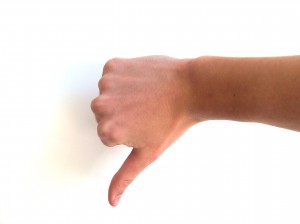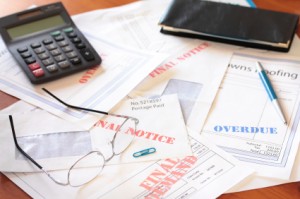 Credit cards are an alluring form of money that many people use. They have many conveniences that make them an attractive option to use when paying for goods or services. However, there are some serious downsides to the convenience of credit cards. Common problems that people experience with credit cards are high debt, negative information on a credit history, and high interest rates and fees.
Credit cards are an alluring form of money that many people use. They have many conveniences that make them an attractive option to use when paying for goods or services. However, there are some serious downsides to the convenience of credit cards. Common problems that people experience with credit cards are high debt, negative information on a credit history, and high interest rates and fees.
Use the FREE credit card chaser tool now to locate the best credit cards!
There are advantages to using credit cards and they can be a sound financial option when used responsibly. Most credit card problems arise through misuse and living beyond your means.
How do credit cards create high debt?
Researchers at Cornell University reported in a 2008 interview with National Public Radio (NPR) that the brain processes plastic payments differently than cash payments.
According to Professor Robert Frank, the brain doesn’t register the money that is spent via credit cards because it is not an immediate loss, such as with cash.
Millions of Americans swipe their credit cards freely without as much thought to the money being spent because the actual money is not right there in front of them.
Spending without consideration of the future could be one reason why the average American’s debt was $4,200 at the end of 2010, according to Experian, one of the three major credit reporting agencies. Many rely on credit cards to pay for necessary items such as groceries and utility bills in times when cash is in short supply. Others can’t resist the ease with which unnecessary items can be bought while on a shopping spree; buyer’s remorse is held at bay for at least a month until the new charges appear on a credit card statement.
High debt can be crippling to your financial freedom. Once your cards are maxed out, they are useless unless you can get another one, and the cycle can happen all over again. A large amount of debt can stand in the way of getting a home or auto loan and interest-compounding balances use up money that could be going towards savings or retirement accounts.
How do credit cards create negative history on a credit report?
 All credit cards companies report to at least one of the three major credit reporting bureaus, Experian, TransUnion, and Equifax. Credit cards are a form of revolving credit that is commonly used to rate your financial creditworthiness through the lengths of your accounts, how well you pay your monthly bills and how much debt you owe. However, there are many pitfalls with credit cards that could result in a low rating on your reports generated by the credit reporting bureaus.
All credit cards companies report to at least one of the three major credit reporting bureaus, Experian, TransUnion, and Equifax. Credit cards are a form of revolving credit that is commonly used to rate your financial creditworthiness through the lengths of your accounts, how well you pay your monthly bills and how much debt you owe. However, there are many pitfalls with credit cards that could result in a low rating on your reports generated by the credit reporting bureaus.
Credit card companies report late credit card payments resulting in negative information on your credit report. Accounts that have been outstanding for a while or have gone to a credit card collector could really damage your overall credit rating.
Furthermore, the credit card companies also report how much debt you owe. The greater your overall debt, the more it overshadows positive information on your credit report. Your credit rating, also called a credit score, really takes a hit once the amount you owe on a credit card starts to approach your limit.
MyFICO.com, the company behind the calculation of credit scores, recommends keeping track of your credit utilization ratio; this percentage is the ratio between your credit limit and how much of that credit you have used. For example, a credit card with a $4,000 limit and $2,000 owed on it has a 50% credit utilization ratio; you have used half of your available credit. The higher your credit utilization ratio, the more it negatively affects your credit score rating.
What high interest rates and fees do credit cards have?
Credit card companies make money by lending to consumers with the promise of repayment at a higher rate. This additional amount is calculated through an interest rate. Credit cards with high interest rates compound debt, making it grow higher every month.
The interest calculator at SmartMoney.com shows that the $4,200 in average American debt will take over four years to pay off with a minimum payment of $100 every month.
At a 10% interest rate, an additional $999 in interest payments will be tacked on to that original $4,200 balance.
Interest rates also usually increase if you have a missed or late payment; some interest rates can be over 20%. You could be paying a much heftier price tag than if you had paid in cash when you add that to late fees, annual fees and over-the-limit fees.
How can I avoid the downsides to credit cards?
Credit cards are certainly useful and convenient, but their downsides can get you into financial trouble down the road if they are not used responsibly. Your credit rating is used by lenders, auto insurance companies and even some employers to gauge if you are responsible and stable, so keeping your credit rating and credit cards in good standing is of the utmost importance. Make sure you:
- Use credit cards sparingly and pay off balances as soon as possible
- Make your credit card monthly payments on time
- Look for credit cards with low interest rates and fees
Lastly, find credit cards with all of the conveniences and few of the downsides now by using the FREE credit card finder!








